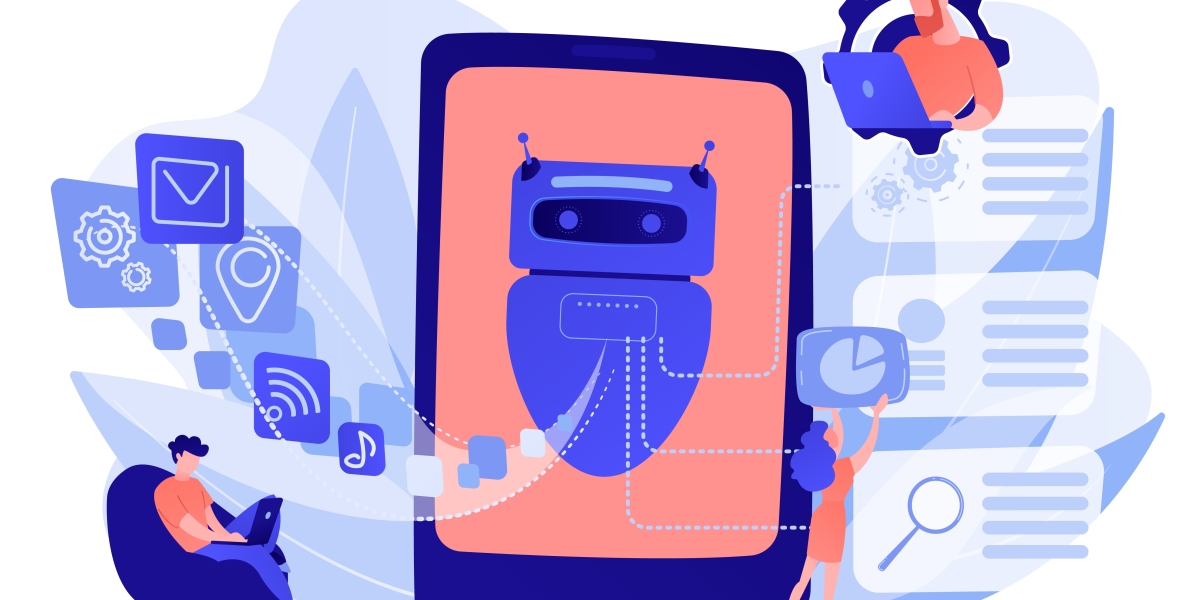In the ever-evolving landscape of technology, Artificial Intelligence (AI) stands as a formidable force reshaping industries and revolutionizing the way we live and work. Its applications span across various sectors, from healthcare and finance to entertainment and logistics, with a profound impact on efficiency, decision-making, and overall progress.
Healthcare: A Revolution in Patient Care
One of the most promising frontiers for AI is healthcare. The integration of AI in diagnostics and treatment planning has significantly improved patient outcomes. Machine learning algorithms analyze vast datasets to identify patterns and predict diseases with remarkable accuracy. AI-driven imaging systems assist radiologists in detecting anomalies, expediting diagnoses and enabling early intervention.
Moreover, AI is contributing to personalized medicine. By analyzing an individual's genetic makeup, AI algorithms can tailor treatment plans for maximum efficacy, minimizing side effects. Chatbots and virtual health assistants powered by AI facilitate patient engagement, providing real-time information, appointment scheduling, and even mental health support.
Finance: Smart Investing and Fraud Detection
In the financial industry, AI applications are transforming how transactions are conducted and investments are managed. Algorithmic trading, powered by AI, makes split-second decisions based on market trends, optimizing investment portfolios and maximizing returns. AI-driven robo-advisors offer personalized financial advice, making investment strategies accessible to a broader audience.
Beyond wealth management, AI plays a crucial role in fraud detection. Advanced machine learning algorithms analyze transaction patterns and identify anomalies that may indicate fraudulent activities. This not only protects individuals and businesses from financial losses but also ensures the integrity of the entire financial system.
Entertainment: Personalized Experiences and Content Creation
In the realm of entertainment, AI is enhancing user experiences and shaping content creation. Streaming platforms leverage AI algorithms to analyze user preferences and provide personalized recommendations, ensuring that viewers discover content tailored to their tastes. Virtual reality (VR) and augmented reality (AR) experiences are also enriched through AI, creating immersive worlds and interactive narratives.
AI is not limited to recommending content; it's actively involved in content creation. Generative algorithms can produce music, art, and even literature. From AI-generated music compositions to deep learning-based video game design, the entertainment industry is witnessing a creative renaissance driven by artificial intelligence.
Logistics: Optimizing Supply Chains and Transportation
Efficiency and optimization are at the heart of AI applications in logistics. Supply chain management benefits from AI-driven predictive analytics, which forecast demand, optimize inventory levels, and enhance overall operational efficiency. Intelligent algorithms analyze historical data and real-time information to identify the most cost-effective and timely routes for shipping.
Autonomous vehicles represent a groundbreaking application of AI in transportation. From self-driving cars to drones for last-mile delivery, these technologies rely on AI to perceive their surroundings, make split-second decisions, and navigate safely. The potential to reduce accidents, increase fuel efficiency, and revolutionize urban transportation makes AI a key player in the future of mobility.
Customer Service: Chatbots and Virtual Assistants
AI-powered chatbots and virtual assistants have become integral components of customer service strategies across industries. These conversational agents provide instant responses to customer queries, streamline issue resolution, and enhance overall user experience. Natural Language Processing (NLP) enables these AI systems to understand and respond to human language, making interactions more seamless and intuitive.
By automating routine tasks and handling common inquiries, businesses can allocate human resources more strategically, focusing on complex problem-solving and relationship-building. The continuous learning capabilities of AI ensure that these virtual assistants evolve and improve over time, adapting to changing customer needs.
The Future Landscape
As AI continues to advance, its applications will likely expand into uncharted territories. The integration of AI with the Internet of Things (IoT) will create smart, interconnected ecosystems. This synergy will empower devices to communicate, share data, and make autonomous decisions, ushering in an era of unprecedented efficiency and connectivity.
However, with the immense potential of AI comes ethical considerations. The responsible development and deployment of AI technologies require careful attention to issues such as bias, privacy, and security. Striking a balance between innovation and ethical considerations will be crucial in navigating the future landscape of AI applications.
In conclusion, the transformative power of AI applications is reshaping our world across diverse sectors. From healthcare to finance, entertainment, logistics, and customer service, AI is not just a technological trend; it's a fundamental shift that is enhancing efficiency, personalization, and the overall human experience. As we stand on the cusp of an AI-driven future, embracing these advancements responsibly will be key to unlocking their full potential.









